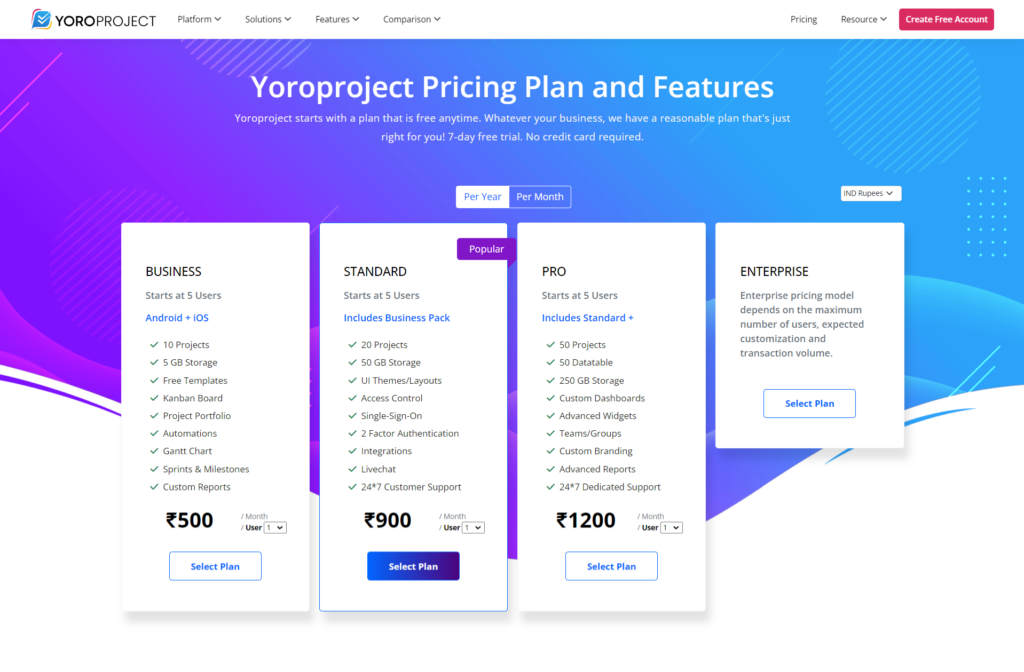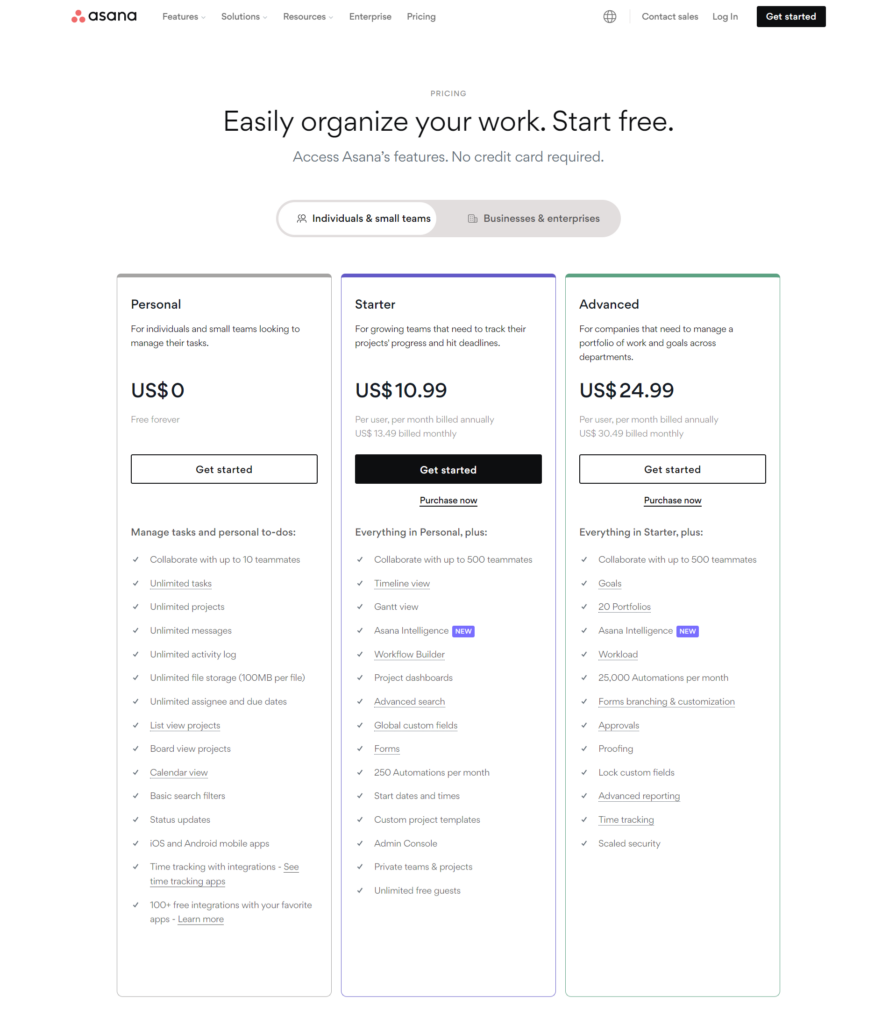Table of Contents
Neglecting your business objectives and neglecting to establish a long-term strategy can lead to projects veering off course and possibly exceeding their intended scope. Implementing strategic project management is a crucial process that ensures your business stays on course, enabling effective planning, execution, and control of projects.
Strategic project management entails harmonizing projects with the broader business strategy to efficiently attain organizational objectives. Achieving success in strategic project management demands a methodical approach that integrates proven practices, methodologies, and tools to guarantee project success.
This guide will delve into the advantages of strategic project management, recommended practices, and software tools designed to facilitate the effective management of your projects.
Why use strategic project management for your business?
Strategic project management is essential for businesses for several compelling reasons:
- Alignment with Business Objectives: Strategic project management ensures that projects are closely aligned with the overall business strategy. This alignment enhances the likelihood of achieving organizational goals and contributes to the overall success of the business.
- Effective Resource Utilization: By incorporating strategic project management, businesses can optimize the use of resources, both human and financial. This efficiency is crucial for maintaining cost-effectiveness and maximizing the return on investment for each project.
- Risk Mitigation: Strategic project management involves a systematic approach to identifying and managing risks. By addressing potential challenges early in the project lifecycle, businesses can mitigate risks and prevent issues from escalating, leading to more successful project outcomes.
- Enhanced Decision-Making: The strategic approach encourages informed decision-making throughout the project lifecycle. This includes decisions related to project planning, execution, and adjustments, enabling businesses to adapt to changing circumstances effectively.
- Improved Stakeholder Communication: Strategic project management emphasizes clear communication with stakeholders at every stage of a project. This transparency fosters trust, keeps stakeholders informed, and ensures that everyone is on the same page regarding project objectives and progress.
- Adaptability to Change: Business environments are dynamic, and unforeseen changes are inevitable. Strategic project management equips businesses with the flexibility to adapt to changes seamlessly, ensuring that projects remain relevant and aligned with evolving business conditions.
- Measurable Success Criteria: Strategic project management involves defining clear and measurable success criteria for each project. This enables businesses to assess and evaluate the performance of projects objectively, facilitating continuous improvement and learning.
- Continuous Improvement: Adopting strategic project management encourages a culture of continuous improvement. By analyzing the results of completed projects and incorporating lessons learned into future endeavors, businesses can enhance their project management processes over time.
Strategic project management is a proactive and holistic approach that enhances a business’s ability to achieve its objectives, optimize resources, and navigate the complexities of project execution in a dynamic business landscape.
Benefits of strategic project management
Strategic project management offers a range of benefits to businesses, contributing to overall efficiency, effectiveness, and success. Here are key advantages:
- Alignment with Business Goals: Strategic project management ensures that projects are in sync with the broader business strategy, helping organizations achieve their long-term objectives.
- Resource Optimization: It enables efficient use of resources, including human capital, time, and finances, leading to cost-effectiveness and improved return on investment.
- Risk Management: A strategic approach identifies and addresses potential risks early in the project lifecycle, minimizing the likelihood of issues derailing the project.
- Improved Decision-Making: The strategic project management process supports well-informed decision-making at various stages, contributing to better project planning, execution, and adaptation to changing circumstances.
- Stakeholder Engagement: Clear communication with stakeholders is emphasized, fostering trust, engagement, and ensuring that everyone involved is well-informed and aligned with project objectives.
- Adaptability to Change: Strategic project management equips organizations with the flexibility to respond to changes in the business environment, ensuring that projects remain relevant and effective.
- Measurable Success Criteria: Projects are defined with clear and measurable success criteria, allowing for objective assessment and evaluation, and providing a basis for continuous improvement.
- Efficient Project Delivery: Strategic project management incorporates best practices, methodologies, and tools, leading to a systematic and efficient approach to project delivery.
- Enhanced Collaboration: Collaboration is promoted among team members, departments, and external partners, fostering a cohesive working environment that supports project success.
- Continuous Improvement Culture: The strategic project management process encourages a culture of continuous improvement, with organizations learning from past projects and applying insights to enhance future endeavors.
- Client Satisfaction: By aligning projects with strategic goals and delivering results efficiently, strategic project management contributes to higher client satisfaction, fostering positive relationships and potential repeat business.
- Competitive Advantage: Organizations that effectively employ strategic project management gain a competitive edge by consistently delivering successful projects that contribute to overall business success.
- Increased Accountability: Assigning roles and responsibilities clearly, a fundamental aspect of strategic project management, enhances accountability, ensuring that team members take ownership of their tasks.
- Optimized Project Portfolio: Through strategic project management, organizations can assess and prioritize their project portfolios, ensuring that resources are allocated to the projects with the greatest impact on organizational goals.
Strategic project management is a comprehensive approach that not only improves the likelihood of project success but also contributes to the overall resilience, adaptability, and competitiveness of a business.
3 best software for strategic project management
Choosing the best software for strategic project management depends on specific needs and preferences, but here are three widely recognized and versatile options:
Yoroproject:
- Key Features: Gantt charts, task management, resource allocation, collaboration tools, reporting and analytics.
- Benefits: Integrates well with other third-party tools, provides comprehensive project planning and tracking features, suitable for large and complex projects.

Asana:
- Key Features: Task management, project timelines, team collaboration, integrations with other tools, visual project tracking.
- Benefits: User-friendly interface, suitable for both simple and complex projects, customizable workflows, supports agile methodologies.

Monday.com:
- Key Features: Workspaces, customizable workflows, collaboration, automations, integrations.
- Benefits: Versatile and visually appealing, supports various project management approaches, robust collaboration features, suitable for teams of varying sizes.

These options offer a range of features to support strategic project management, including planning, execution, collaboration, and reporting. It’s recommended to explore each software’s specific features, user-friendly interface, and pricing to determine which aligns best with your organization’s requirements and workflow.

Effective strategic project management is crucial for organizations to attain their business objectives. Through the application of best practices and the utilization of appropriate software tools, project managers can proficiently oversee projects, ensuring timely completion, adherence to budget constraints, and satisfaction among all project stakeholders.




